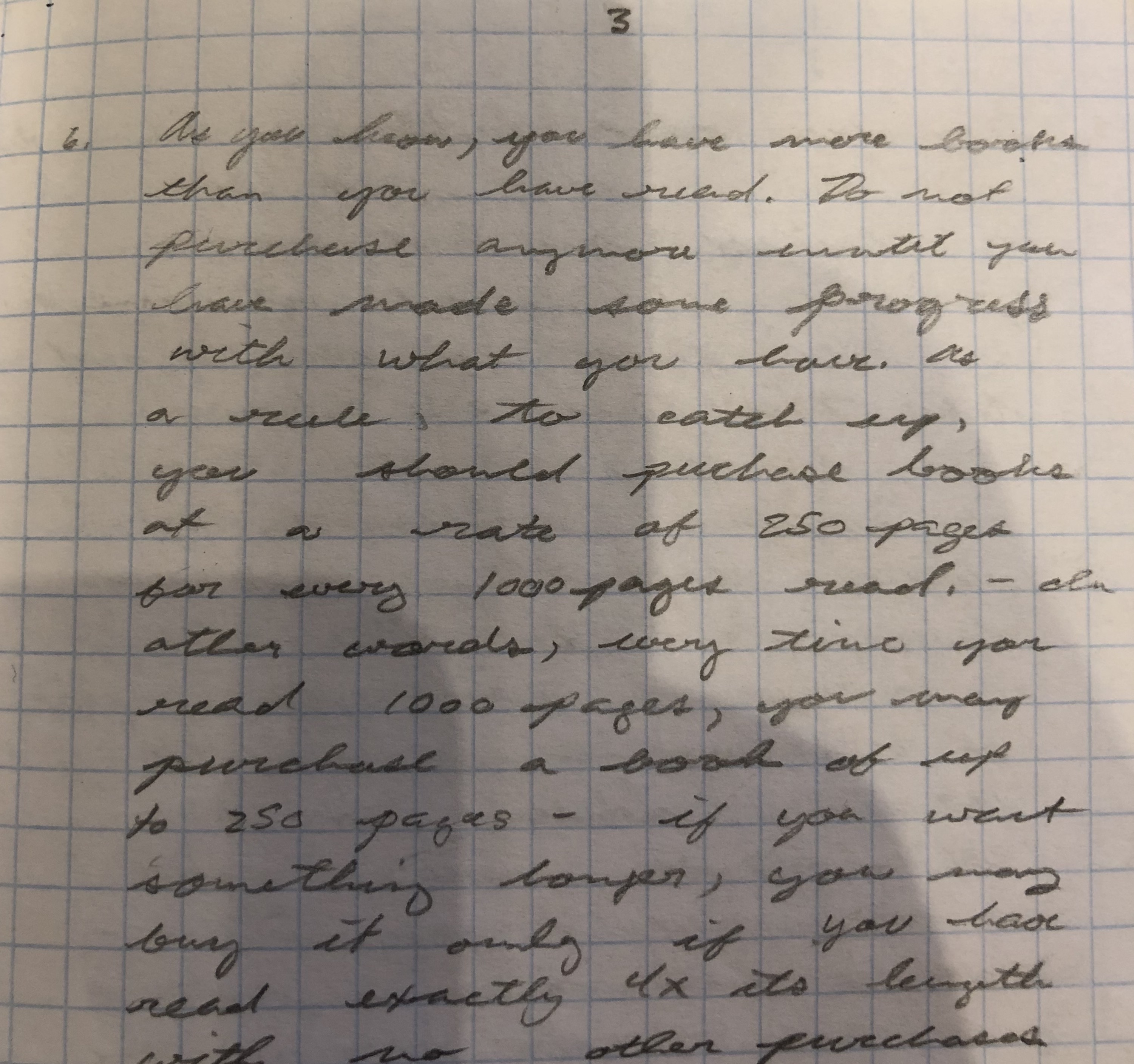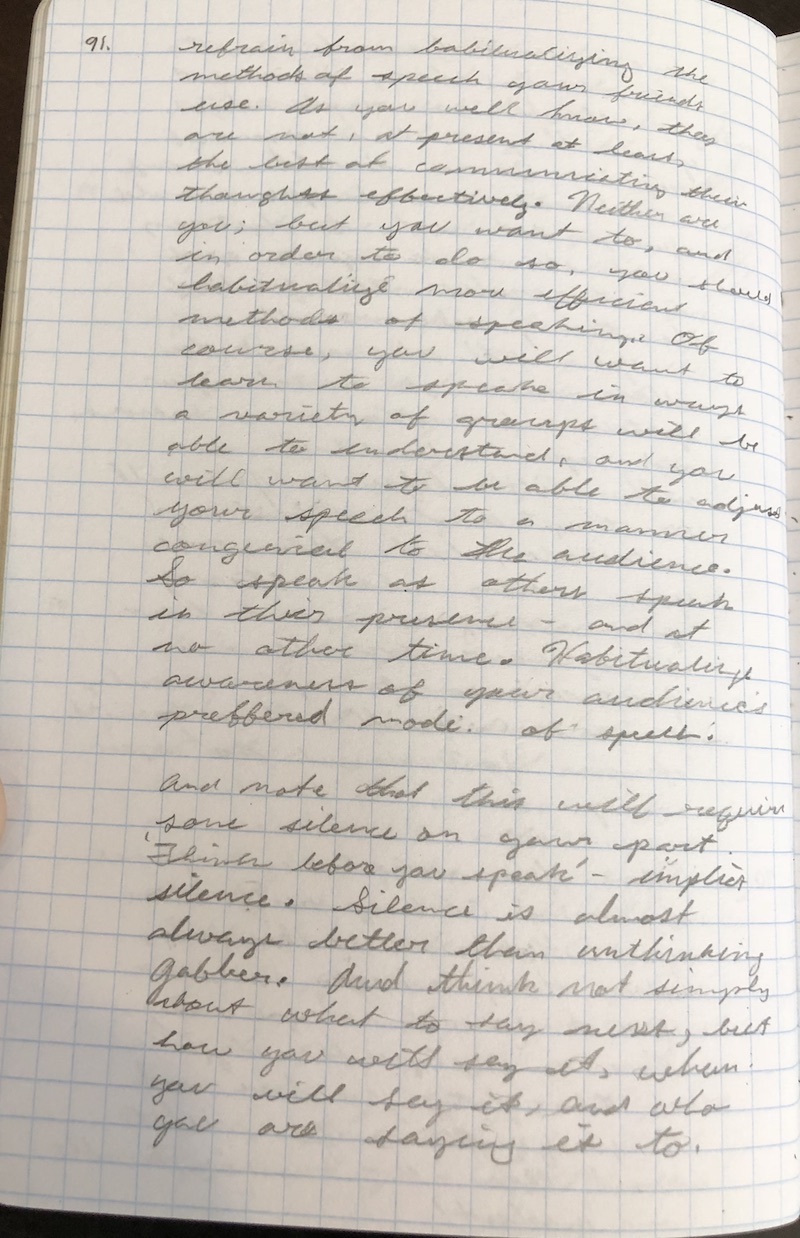
RationalTimesTM
Maxims and aphorisms from especially lucid moments.
Publisher
Copyright © 2024 by Mattanaw. All Rights Reserved.
Publisher: PlaynText Location: Tempe, Arizona
PlaynText is dedicated to the publication of high quality journal publications issued in premium book format, as book/journal hybrids. Each publication is intended to be an illustration, potentially, of the maximum and least-inhibited use of free thought and free expression.
Copying, distributing, plagiarising, processing, storing, and serving the contents of this book is a violation of intellectual property, unless otherwise indicated by the copyright holder elsewhere, as it relates to this specific issue of the Book and Journal of Mattanaw. For permission to use any contents of this book, please contact the author at http://mattanaw.org/com.html.
Published by PlaynText, Inc, companies wholly owned by the author, Mattanaw, Mattanaw, (formerly “Christopher Matthew Cavanaugh”).
Printed in Tempe, Arizona, in the United States of America.
Published and printed by PlaynText, an imprint of PlaynText, Inc.
The Publisher is not responsible for the content of others produced on websites, applications, social media platforms, or information related storage or AI systems. The processing of this Book and Journal by an AI System is prohibited.
Library of Congress Control Number (pending)
Library of Congress ISSNs: 2998-713X (Online), 2998-7121 (Print)
Author
Artist/Author: The Honorable Dr.9 Mattanaw, Christopher Matthew Cavanaugh, Retired
Interdisciplinarian with Immeasurable Intelligence. Lifetime Member of the High Intelligence Community.6
- Masters Business & Economics, Harvard University (In Progress)
- Attorney, Pro Se, Litigation, Trial, Depositions, Contracts (E.g. State of Alaska v. Pugh, et. al., Alaska Superior and Supreme Courts)4
- B.S. Psychology, University of Maryland, 4.0, Summa Cum Laude1
- B.S. Computer & Information Science, University of Maryland, 3.91, Magna Cum Laude2
- B.A. Philosophy, University of Maryland.3
- G.E.D., State of Maryland, Montgomery County, 1999.
- Lifetime Member of the High Intelligence Community, Mensa Lifetime Member
Former Chief Architect, Adobe Systems
Current President/Advisor, Social Architects and Economists International.
CEO PlaynText | CEO PlainText
Contact:
Resumé
Edit History
- 514 Wanattomians, Epoch 1766904390, Saturday, December 27, 2025 23:46:30, United States of America
- Published: October 7th 2018
- Edited: December 2nd 2018
Contents
Introduction
In my early twenties I started a journal called “Rational Times” containing aphorisms and maxims similar to those found in the meditations of Marcus Aurelius. My main goal was to record principles and instructions at key moments of elucidation, that would allow me to self-mentor.
After a long hiatus from this activity, I am resuming my efforts. I experienced major changes in my personal life, and now I could use some self-talk. I need some wisdom from my earlier self again. Truly, old messages to and from yourself can read like the familiar but external voice of an old mentor who knows you intimately.
Upon revisiting, old messages appear new, familiar and more acceptable, providing fresh and sometimes indispensable inspiration.
Here I will list current pieces of advice to myself intermixed with the original longhand entries from my old personal handbook.
Much of this is an archive. Old posts are presented mostly unedited, for reasons that will become evident later. Some pieces of advice, self-directed, may have minimal value to others as originally written. In fact, since more than a decade and a half has passed, some pieces of advice do not apply to my life any longer. Nevertheless, trust that if I chose to include it here, it is because it has didactic value, often of a sort that is quite subtle, connected to the realities of human psychology and limits of cognitive utility and behavioral transformation. Initially the reason for such an inclusion might not be revealed. Subsequent edits may include commentary (this page will be edited frequently), but if commentary never appears, it is because there is at least one planned article or work that will explain it, or otherwise provide required elucidations. In that case, I hope I’m disciplined enough to return and link the item to the newly produced piece of material. That is my intention—but if I drop dead it will not come to completion! There is no way to tie up all loose ends unfortunately.
This original journal is effectively the first book I ever wrote. It is the first of five. All will be published here in original or edited form in the near future.
Feel free to browse the complete scan here: (Rational Times Complete).
‐ MATTANAW
Sunday, October 7th 2018,
Thursday, November 22nd 2018,
Read the books faster than you buy them. [Circa 2003]
[6]
As you know, you have more books than you have read. Do not purchase anymore [sic] until you have made some progress with what you have. As a rule, to catch up, you should purchase books at a rate of 250 pages for every 1000 [sic] pages read. — In other words, every time you read 1000 pages, you may purchase a book of up to 250 pages—if you want something longer, you may buy it only if you have read exactly 4x the length with no other purchases.

Sunday, November 3th 2018,
Rest because despair is a mood. [April 2003]
[3]
In those times when you despair, rest. Even despair may be classified as a mood; and as we know, all moods are impermanent. We live through bad times for the good times.

Sunday, November 3rd 2018,
Speech Habituation and Your Audience [Circa 2003/4]
[91]
Refrain from habitualizing [sic] the methods of speech your friends use. As you well know, they are not, at present at least, the best at communicating their thoughts effectively. Neither are you; but you want to [improve], and in order to do so, you should habitualize [sic] more effective methods of speaking. Of course, you will want to learn to speak in ways a variety of groups will be able to understand, and you will want to be able to adjust your speech to a manner congenial to the audience. So speak as others speak in their presence—and at no other time. Habitualize your audience’s preferred method of speech.
And note that this will require some silence on your part. “Think before you speak” implies silence. Silence is almost always better than unthinking jabber. And think not simply about what to say next, but how you will say it, when you will say it, and who you are saying it to.
[Note: This approach had severe negative consequences for me in the long term, but for most people, I think it is advisable. It is ill advised when it is excessively stifling and would lead people to have the wrong estimation of you.]

Sunday, October 7th 2018,
Create a gap between the time you think of making a purchase, and actually making that purchase.
If you still want it later, then perhaps it is something you really need. Usually, you will find, you could do without it. That’s if you do not forget about it entirely.
This applies to more than spending behavior—this discipline can carry over to other activities.
[A note from my early twenties when I was unwisely spending more than I was earning and doing so somewhat compulsively.]
Human Shortcomings
The increasing of rationality is partly ability dependent and based on proper earlier mental preparation and willingness combined with a genetically predetermined quality of mind, and of course an early development with proper nutrition and good quality rational stimulation. An increasing of rationality, where effort can achieve it, within deterministic processes, involves an identification of the variety of human shortcomings that are in opposition to it or block its advancement. With a knowledge of the various shortcomings, many of which are directly at odds with rationality, including causes for why rationality doesn’t exist in many other people consistently and pervasively, one can then use solutions that exist in this writing and elsewhere, and have a personal plan of action enabling rationalities increase. It is clear, that in academic contexts, there has been a striving for the utilization of logic, good reasoning, higher quality reasoning in natural language, the overcoming of illusions and delusions, the improvement of personal psychology, and the adoption of scientific thinking to improve one’s real knowledge. Education combats superstituions and attempts to teach the general public to think more sanely about a range of topics of interest. These general efforts of the acaemic community, supported by governments, partly addresses the need mentioned to overcome human shortcomings and shows that there is existing within the population an effort, albeit a somewhat disorganized one, to attain a better level of rationality in the general public. Individuals who might be reading material here would be witnessing another effort to more completely organize what is needed to identify human shortcomings, organize solutions to these shortcomings, and process approaches to improve self-training and training of others towards greater rationality.
That this work obviously demonstrates that previously efforts by humanity were very lacking in the collection of human shortcomings and an understanding of moral-behavioral processes to eventually be more rational in a way that is obviously proven regarding advantageousness scientifically, we know humanity is and was in a early state in development of rationality, and much more needs to be done to spread the information needed to educate better and self-progress to become more rational. Others would not know, outside of reading material here, in this and other civilizations, that the subject matters here covered, well organized explaining the topic well, were actually even needed to address the subject, meaning they were lost in how to advance on this topic. And yet, civilization believes itself to be creating paragons of rationality and that it itself is the height of human possibility. This is very far from true and not only that, it could not describe, or define, or have any process for the creation of any rational individuals that this document would discuss, and that there are few to no exemplars living that would know how to educate anyone to be like them! Meaning they too wouldn’t exist except by accident.
Here in this total Book and Journal, and partly in this work pertaining to rational self-development is a behavioral direction, a kind of syllabus for civilization, to have an improved moral perspective, that would allow for the improvement of everyone to become more rational, over a very long period of time, which will extend over the millenia. This work does not pretend to offer a plan for people in the distant future, but rather shows what is obviously required, given human shortcomings, to have the development, that all would think we should have, if they were rational and wanted others to be rational too because of that.
There is in this book and journal a work of the same phrase [Human Shortcomings](human-shortcomings.html] that is intended to familiarize the reader with the various human shortcomings and provide solutions to many of them, and some level of planning for addressing any that have not been mentioned, which are numerous. That work is assistive of providing context to this work, and is considered a preliminary reading, for proper context, to understand the remaining collections of works in this large collection.
More on this subject soon.

I am a retired executive, software architect, and consultant, with professional/academic experience in the fields of Moral Philosophy and Ethics, Computer Science, Psychology, Philosophy, and more recently, Economics. I am a Pandisciplinarian, and Lifetime Member of the High Intelligence Community.
Articles on this site are eclectic, and draw from content prepared between 1980 and 2024. Topics touch on all of life's categories, and blend them with logical rationality and my own particular system of ethics. The common theme connecting all articles is moral philosophy, even if that is not immediately apparent. Any of my articles that touch on "the good and virtuous life" will be published here. These articles interrelate with my incipient theory of ethics, two decades in preparation. This Book and Journal is the gradual unfolding of that ethic, and my living autobiography, in a collection of individual books that fit into groups of book collections.
This Book and Journal is already one of the largest private websites and writings ever prepared, at nearly 1 million words, greater than 50,000 images and videos, and nearly one terabyte of space utilized. The entire software architecture is of my creation. Issues of the book for sale can be found under featured. These texts are handmade by myself, and are of excellent quality, and constitute the normal issues of my journal that can also be subscribed to. The entire work is a transparent work in progress. Not all is complete, and it will remain in an incomplete state until death.
I welcome and appreciate constructive feedback and conversation with readers. You can reach me at mattanaw@mattanaw.com (site related), cmcavanaugh@g.harvard.edu (academic related), or christopher.matthew.cavanaugh@member.mensa.org (intelligence related), or via the other social media channels listed at the bottom of the site.